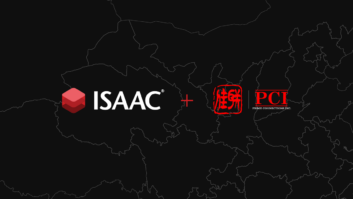THE OUTSOURCING ALTERNATIVE
Apr 1, 2003 12:00 PM,
MARK MAYFIELD
In nearly every industry, in almost every business function, outsourcing has become a common business practice. Many companies use the services of outside companies to handle operations such as payroll, benefits programs, public relations, advertising, and information technology services. According to a 1998 survey conducted by the Outsourcing Institute, the top ten reasons why companies outsource certain business functions include:
- reducing and controlling operating costs;
- improving company focus;
- gaining access to world-class capabilities;
- freeing up internal resources for other purposes;
- resources are not available internally;
- accelerating reengineering benefits;
- function is difficult to manage or is out of control;
- making capital funds available;
- sharing risks; and
- cash infusion.
Besides common business functions, the trend has yet to embed deeply into the systems integration industry. For some reason, there is still a tendency for companies — suppliers and integrators — to want to vertically integrate to the point where they can claim to be full line suppliers with full service capability — everything under one roof. But is that really what the customers want? More to the point, does it really offer them the best possible service?
The business school casebooks are littered with examples of companies that have failed because they overstepped their fundamental value proposition — their so-called core competency.
For many systems integrators and A/V contractors, this core competency revolves around technical knowledge, system design, and installation. But most of the time, that isn’t enough to create a truly satisfied customer. Project management is also a skill that must be mastered for even the smallest of jobs. In addition, you have to make sure that the right products are ordered and are on hand, arrive on time to the job site, and are delivered to the exact location — not just on site but at the precise location on the job site. For many companies, these skills don’t come naturally, so they have to be bought by adding staff with that particular expertise, by investing in training staff to develop these strengths, or by going outside. The problem is that going outside has not always been an option that’s easy to find.
As recently as the NSCA Expo held in Dallas in March, one company has recognized this situation and has begun to offer value-added programs that effectively allow systems integrators to outsource some of these tasks. Herman Systems Group, a service program of Herman Electronics of Miami, was developed specifically for system integrators to allow them to improve operational efficiency, project management, and cash flow related to the procurement of installation materials and the logistical complexities that are typically related to procuring them. Having been in the distribution business for more than 40 years, the company has developed significant expertise and state-of-the-art technology to implement these services for its customers. It offers two value-added programs to customers to help facilitate the implementation process: Virtual Warehouse and Project Level Management.
VIRTUAL WAREHOUSE
Virtual Warehouse allows system integrators to have a customized on-hand inventory stored in Herman Electronics’ warehouses at no cost, which guarantees that the inventory will be available at all times in the quantities that the integrators require.
Virtual Warehouse is a concept that works for integrators who work on several smaller projects, such as churches and corporate A/V. Most integrators who choose this option would keep a small inventory for their installation trucks but could refill them from the larger inventory. That eliminates the need for larger inventory stores in their facility and from keeping the cash from being tied up in that inventory.
“Our core competencies include the procurement, management, and distribution of products,” says Jeffrey Wolf, president of Herman Electronics. “In many cases, these functions are not core competencies of system integrators. Yet they spend significant man hours on these activities, when in fact such valuable time could be more productively utilized on their strengths in system design and installation.”
PROJECT LEVEL MANAGEMENT
The second program was designed for integrators who work on large projects on a project-by-project basis. Typically, a large amount of time is dedicated to purchasing and coordinating deliveries of installation materials. This service lets customers send a bill of materials list and expected delivery date directly from a CAD drawing or some other method. Herman Electronics then manages all logistics related to procuring the materials and staging of the order and ships it to the desired location at any specified date. “Both of these programs can be implemented or customized to meet the needs of every customer,” Wolf says.
Why outsource these tasks? True, many manufacturers will drop ship product directly to a job site in a construction project, but that often requires special arrangements and can be a nuisance to an already overburdened shipping department. When the wrong product arrives at the right location (or vice versa), the result is needless finger-pointing and an unhappy customer. Project management, though a necessary function for every systems integrator, is not always treated as a profit center — though it should be — on every job. Even when done well, it can result in eroded margins.
But the best reason to consider outsourcing certain functions is simply this: good management practice demands honest and periodic self-inspection of your company’s strengths and weaknesses. If certain critical functions — those that are essential to building your business and keeping customers happy — are not among your strengths, consider letting an expert handle them. This is, after all, the same reason your customer has hired you.
Mark Mayfield is editor of S&VC. He can be reached at [email protected].










